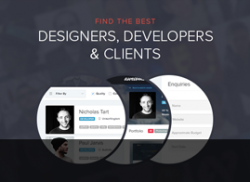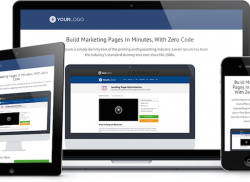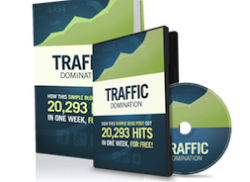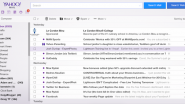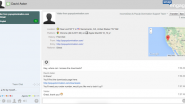Interview With Sasha Gilberg of 2XC
Sasha Gilberg, 24, is a young entrepreneur who started one of Australia’s first conversion optimization agency, 2XC (Two Times Conversions), and has since grown it to nearly a half a million in revenue.
In this interview Sasha shares his Six Conversion Principles, some great tactics and examples, and his biggest life and business lessons from a year of trials and tribulations. Expect to get a lot of tactical nuggets on how to improve your website’s conversions, along with some inspiration and insight into the entrepreneurial roller coaster.
Sasha was a scholarship recipient for Underground Online Seminar 8, which gives scholarship opportunities to young entrepreneurs 13 – 23. If you’re a young entrepreneur 23 and under, apply by Friday, January 10th 5pm EST for your chance to win a ticket (or streaming scholarship).
Contents
- Biggest takeaways from the interview with Sasha:
- The 6 Conversion Principles:
- Conversion Principle #1: Increase your value proposition.
- Conversion Principle #2: Increase Relevance
- Conversion Principle #3: Build Trust
- Conversion Principle #4: Amplify Desire
- Principle #5: Eliminate Friction
- Conversion Principle #6: Add Ethical Urgency
- Lesson: what is not sustainable cannot be sustained.
- Lesson #2: Integrity.
Biggest takeaways from the interview with Sasha:
The 6 Conversion Principles:
- Increase Your Value Proposition. Really evaluate your offer and make sure it matches what your customers are looking for. Posing this question to yourself can result in a series of small or big changes that boost your conversion.
- Increase Relevance. Write specifically to your audience; the more narrow you can get, the more successful you are in converting your audience. Even if you are selling the same product, you can sell it differently to different audiences, making your campaign efforts convert much better.
- Build Trust. Whether through personalized copy, or through social media credibility, professional design, or media mentions, increasing your visitors’ trust boosts your conversions.
- Amplify Desire. You can amplify desire for your product without changing the product, offer, or value proposition at all. From great photography to product display and packaging, there are many things that you can do to amplify desire for your product and boost your conversions.
- Eliminate Friction. In addition to adding elements to your site to boost conversions, you should also look at what you can remove to eliminate friction. Too many pages, too many fields on a form, or even a multi-step checkout process are all great examples of friction you can eliminate on your site. Make it easy for people to do business with you.
- Add Ethical Urgency. Create urgency to take action now, but do so in a way that doesn’t violate the trust building principle or your integrity. For example, a physical product can sell out and you can create urgency around this, while an ebook ‘selling out’ just creates mistrust among your customers.
Biggest lessons from Sasha’s recent entrepreneurial roller coaster:
Lesson #1: What Is Not Sustainable Cannot Be Sustained. Take a good look at your business model and delivery process. Don’t oversell unless you can deliver, as it can lead to stress, poor trust, and ultimately implosion of your company through over growth. Build sustainable operations that deliver value, then sell that value, rather than focusing purely on sales and short term revenue.
Lesson #2: Work With Integrity, Even When It’s Easier Not To. Sasha went through a lot the past year – enough for many young entrepreneurs to just walk away, quit, maybe start over. But he followed through on his promises, was honest with his customers about his challenges, and ultimately made it out of the temporary struggle stronger than ever. Not just in his reputation, but also in his personal confidence, entrepreneurial ability, and future.
Enjoy the video interview, with transcription below.
Transcription:
Dmitriy: When we met at Underground 8, you were going kinda in two directions, one was the product route where you were developing some information products and training and the other was the higher end like B2B services, so sounds like you have taken more of the service direction, so what drove you to make that decision and tell me a little bit about how it’s been going since.
Sasha: Sure thing. Yeah as you said, I started off with a product and with a bit of promotion, I sold a few grand of it which isn’t very much and then I just got few, from that I got opportunities to do consulting and implementing services and that just snowballed and I just followed every revenue and then the product just kind of went on the backburner, while the
marketing agency has been growing in the first six months, we’re really amazing from zero to 300k in the first six months which was great.
So with the product not really working and the agency taking off, I decided well let’s just focus on networks and let’s just scale that up.
Dmitriy: How have you guys been able to get high end corporate clients, especially as a newer agency?
Sasha: At first by exhausting all our personal resources, our personal contacts, who do we know, who can we get up there, we didn’t really have any big name people we could put on and so that was the start.
With that, we did advertising on google adwords and I’ve really got the majority of our leads that way; about 2 or 3 percent of leads were from big clients and yeah we were just able to sell them all on to the service. The other thing that i’ve realized is that sometimes, you know selling isn’t that difficult. I had put I guess roadblocks on myself, mental barriers on selling where I thought I had to have this in place, and this in place, and this in place, until someone would listen to me or you know be willing to buy? What I found is, to make things really simple, just speak to your prospect, find out what they want, so focus on the outcome, and then just talk about what can we do to help them achieve that outcome. And you know you might, you might get objections throughout the process but you know that’s not a bad thing, just people doing their due diligence and wanted to make sure you are what you say you are. Just being able to handle objections is enough in saying that once you have more client logos you can show in your site, case studies and things like that, you just make things much easier and the sales process just becomes short of because you already have inbuilt trust.
Dmitriy: Yeah, but it sounds like for you even you built that credibility, it’s awesome that you guys were able to go out and say you generate a bunch of leads, put together sales process even without having, you know all those past testimonials and credibility in the first place, and then build all of that through, just through lead generation sales, really the kind of service that you guys sell that you are implementing for yourselves.
Sasha: A hundred percent. And the other reason why it was pretty straightforward is it is because it was a new market, there were very very few competitors, I think we’re the only in Australia that were doing this at the time when we first launched. So, because there’s no really competitions who really understand conversion optimization as clearly as we did, when people called us up, “Oh my God! You guys are speaking our language, this is what we want you know, we want more conversions, and…
And so now, as more and more conversion agencies are popping – up and more digital and marketing agencies starting to offer conversion like services, all that means is it’s not enough to just say we convert, we do conversion optimization, would you like some, we now have got to show how we’re different, how we’re better, and now being unique and demonstrating proof plays a more of an important role in it.
Dmitriy: So initially, you’re almost a category creator in the marketing agency world and now there so many people popping up in your category, you’re kind of creating a new level of differentiation.
Sasha: Yeah, I mean we went there first in the world, that in Australia we were definitely were, but we still marketed overseas. So, more of our clients were actually from America and the UK and Canada and then in Australia, so that’s really cool too. We initially have a global market from day one.
Dmitriy: Yeah, like instantly international business. That’s what so cool about you know building a business these days, there’s literally no barrier for that kind of growth.
Sasha: Yes.
Dmitriy: Then I guess a little more of a tactical question, and I know this obviously depends on a little bit on your specific style and the market but what are your top let’s say three conversion tips for a website right now or any kind of general principles that you can share with anybody who’s listening.
Sasha: Sure thing. So in terms of tips, we literally have hundreds of different techniques and strategies that we can apply. We also have a six core conversion principle model which basically encompasses all those hundreds of tactics, and six principles, right?
So I’ll go over those in a second, and when you understand all those six principles and you personally come up with your own creative ideas, on how to improve your conversions because what we do is what we say in our logo, “We do what beyond just practice”, and we do things more than just changing the color of your call to action by then or moving a few things around.
Conversion optimization to us is really thinking big picture and really it really encompasses pretty much all the different marketing you can do, you know, under that umbrella. So it’s a very wide scope we have and it’s about identifying what changes to your marketing and your business will increase the conversion the most. So, that’s how we look at it, and so for instance, so i’ll run in to the 6 principles:
Conversion Principle #1: Increase your value proposition.
Your value proposition is essentially the value your product creates. The value means different things to different people and different markets. To keep it really simple, in the electronics appliances market for instance, TVs whatever online, it’s all about costs, if we had 2 Samsung 45” LED TVs, exact same model and one retailer is selling it for $1000 and another retailer is selling it for $995, it’s only $5 difference for these guys but it’s the exact same TV and shipping is very undoubtful so, in this instance, you know pretty much everyone will go to the $5 cheaper TV ‘cause it’s lowest price market. Now, not all industries are about lowest price markets.
Value can be demonstrated through other means, so at first I suggest you think about what is value to my target market, so think about that for you. It could be your personal brand and reputation, it could be the result you’ve achieve for other people’s outcomes, and it could be like the average of all the results that you’ve achieved if you consistently show better results and achieving whatever you’re selling then the next time then you got an advantage in terms of proposition of being better, it’s just giving the best. It’s about being one step better than the competition.
Sometimes, value isn’t that more features, that more power, that more speed, sometimes, less is more when it comes to value. For instance, a few years ago, when the Flip Cam first came out, it was like, do you remember this? The Flip Cam?
Dmitriy: Yep. Absolutely. Yeah, it was all about less feature, just a super quick thing you just whip it out, you film something and then you just plug it into your laptop and you got quick video editor you can upload it.
Sasha: Exactly. And prior to that, they are already selling Panasonic, you know big bulky video cameras, all these features, optical zoom and this and that. The people didn’t want that, you know, there’s a market, we want less, we just want just get easy film, plug-in to the computer, done. And so, Flip whatever the companies out there made this camera really simple, and yeah it sold like hotcakes because to the market at that time, that was the value, something that’s quick and easy and simple.
So, get clear, my recommendations is that get really clear on what value is to your market, to your audience, think how you can do it better.
Dmitriy: So basically, under principle #1, adjusting value proposition, might have been adjusting operations wise was internally as far as how you deliver. Cool.
Sasha: Exactly, here’s a good reason example, Amazon very recently introduced an ad. They are going to introduce that 30 minute shipping with drones. And so that’s increasing value proposition for shipping, you know, faster shipping, also is a tangible outcome value proposition is really not far behind it.
And essentially with the proposition what we wanna focus on is innovation maybe that’s what it should be called, innovation. ‘Cause it’s making your product and service better and delivering more value to your customers and that’s time for innovation.
Conversion Principle #2: Increase Relevance
Sasha: Increase relevance. Relevance is basically how you communicates and if you have different target markets. Let’s say for iPads their target market was pretty much everyone that if they communicate it in special wires for instance and the Mac store, let’s say physical and somebody comes in and they shop in around and thinking I wanna buy an iPad, they’re not sure yet and the actual salesperson, let’s say it’s a kid, like a 15 year old teenager boy comes in and just looking around he’s on the fans club and the salesperson comes out to say, “Hey! How can I help you.” and goes on people you know like that. So for this salesperson to be relevant to this guy, he should think what this 15 year old kid care about like you know, all the games he can do, you know, how he can launch social media network, just like, it’s God! You know snapshot and just talk about all things just relevant to a teenage boy or find apps whatever and to tell just “Yes, yes that’s exactly what I want.” he bought it. And now later a mother, you know comes in with her 2 kids and says, “I wanna buy an iPad or I’m thinking on buying an iPad” so the salesperson to her, you know to be relevant he needs to say things which will appeal to her like, say or what did she lack on cake recipes or bored when I’m cooking and he press the apps and hear about the latest news you know blah blah blah, fashion magazines, all the stuff like so the salesperson just shows pages relevant to that on what she wants.
Dmitriy: So basically that’s the same thing for people on your website when you’re already thinking about who’s your audiences and being super relevant to what they doing.
Sasha: Exactly, and there are many ways to do but a really simple one that’s easy to implement in getting results from is by having a segmentation survey on your homepage. So, first thing you do is select an audience; you know it could be by age groups, it could be male or female, it could be by the level of experience at a certain topic or whatever, and then you can now have one question, a multiple questions and then you send them down the funnel and create a totally relevant experience depending on who they are and where they are at. And people look up and, “Oh my God, you get me” which will result in higher conversions.
Dmitriy: That’s awesome. Yeah, it’s so cool and makes a lot of sense rather than selling the same product to the, to a larger audience the same way every time really narrowing down a funnel based on a turning base than who your market is. Awesome!
Sasha: Yeah, and another why is you probably know with landing pages, so you could do in adwords, advertise, Facebook advertising, the more relevant your landing pages to your ad and to your keyword people were searching for, the higher the conversion will be.
So, if we’re selling office chairs, and we have all sorts of office chairs from the cheapest ones to the most expensive ones. Let’s say it’s a google search type in a cheap office chair you want to if that’s really selling you own your landing page says, “Hey we have cheap office chairs.” And you know post a picture of your office chairs and explain why you have the cheapest, good quality and whatever you want and until we saw some top high office chairs or Hermanela office chair you show by landing page the Hermanela office chair and try to talk about your cheap office chairs because that’s not going to appeal to that person to offer a high-end office chair. So the more tied you are to what people want the better.
Dmitriy: Awesome!
Sasha: Thinking big picture, relevance comes in your actual marketing and the position of your business maybe how business should be positioned at a particular segment and i’ve been trying reach so many people, so we look at a really big picture well not just what’s going on, on your website.
Conversion Principle #3: Build Trust
Sasha: Alright, build trust. If people don’t trust you then how can they buy, right? So, to trust has to show in many different ways from one really obvious one, the design with your site. If your design like looks you know cheap and outdated and looked really bad that’s gonna hurt trust. Paradoxically, if people already know you like they know your brand then that’s okay. It doesn’t really matter how your website looks.
For example, if you have come up from an idea for an offer and you wanted to send it to your list, you cannot like use you know, simplest website, the most ugliest thing in the world right? But, you just say, “Hey guys! I got this idea who’s interested?”, ’cause people sense they know you, they like you or they trust you, they don’t care how it looks, it doesn’t matter. And so, you keep that in mind you gotta understand that you exist in relationship whether it’s a person or could be with a brand you’re presenting, its company, design is one thing, or possible from the design is obviously you know it’s a way better. At the end of the day you can test it but a good design, it generally converts most of the time, also obvious stuff and more testimonials, adding credibility just like big clients that you have worked pr credible associations you’re part of in which boosts your credibility, all these things could use trust and heaps of different things it could be social proof you know, having a big Facebook following so people say, “Oh there’s already thousand of people trust these guys, it must be good”, something like that.
And for instance, if you have Facebook page use things like ten followers and having them on your site and people might be bit reluctant and think these guys must be brand new, who are these guys no one knows about them, so it can hurt trust. So if you go to a site and you show in your Facebook likebox, a very few people you know liking you or following you, then you are actually doing yourself a disservice by showing it there.
Conversion Principle #4: Amplify Desire
Sasha: Amplify desire, so, what can we do to really make the people desire what you have without changing the product just that by showing it in a different light. For instance, let’s go back to office chair example and if we’re selling like, we have a picture or a photograph of the chair. If the picture is done on a shoot-camera phone and it’s kinda dark and it’s blurry and has a bad angle. It doesn’t look like great. Then, you have very well hurt conversions. If however, the photo is done in a professional photo studio, it looked amazing, you know, had the colors and everything. It just makes me go, “Wow, that’s incredible. It looks so great!”, and that amplifies the desire. And if the product is just exactly the same, just by putting it in a different light, it can make people want it more or less. So, you to think what can you do to make your product look better and it could be the design of your product packaging itself, it could be the design of your actual product.
I’m not here to give you a top ten list of recommendations and so okay do these things and get more conversions. I really want to empower you to understand what makes a website conversion go up or down in real time. So, you have the power to come to like a matrix and see what you need to do at any given time and which principle is holding back your conversions the most, so you know what to focus on. ‘Cause there’s thousands of things that we could do, that’s about getting clear on what will make the biggest impact. And other thing to keep in mind is, two years ago I wrote a book, which includes blueprints which has underage principles, a lot of tactics listed, see those ideas as well. So, for anyone interested just email me at [email protected] and I can send you more facts.
Principle #5: Eliminate Friction
Sasha: It sounds obvious, right? If there is friction on your sites, then, it’s gonna slow down your conversions. You wanna make things really simple, effortless, you don’t want people to think, you want them to click, and skim, ‘yup, yup, i like, great!’ done.
The more friction you have, the harder it is for people to convert, so this can mean your website being slow. You wanna increase your website load speed. It could mean, reducing your checkout process, you may have 5-6 steps in your checkout, I’ve seen this. And reduce that down to a simplified checkout process that helps. It could be about eliminating phone fills you don’t actually need. I mean, so many people are, this massive prongs within they share they don’t even need, but they include it anyway just I don’t know why. So, the more simple you can make it, the more streamlined, the better.
Dmitriy: Your site doesn’t really have much of a navigation and stuff kind of following that principle of eliminating friction?
Sasha: Yeah, totally. If you’re look on the site right now, it is in absolute face hold aside. I’ve purposely done that because as a side note, I’m actually rebranding, I did have a business partner I brought on a while ago, and some things happened and now like, I guess we had a legal dispute but long story short, rather than try and battling, battle him for the name, I’m just going to make a new brand. We will be pivoting going down an even better direction and there’s so much to be learned from that in itself, from like what’s been going on in last 9 months with that stuff. Like I’ve been in the business for six years now doing my own stuff and the last 3-5 months
Dmitriy: You’re 24, right? So that’s starting from 18 to 24?
Sasha: Yeah.
Sasha: Yeah. And, the last 6, 9 months as I’ve been really, really, really, really tough time with the stuff that’s been going on, you know, it’s actually what’s making me, it actually what’s, I’ve learned so much more in this last 6, 9 months and I had for the whole 6 years of doing this stuff. So grateful like that shit situation happened, I’ve now grown an unbelievable relationship with clients with internal systems and processes that phenomenally better. Everything is much in my confidence and skill set as an entrepreneur is much better like everything is just unbelievable. I’m going to make a wild pause this one day and that’s really distill the lessons and what-nots and that’s I’ll leave when that comes out because that’s gonna be awesome. Like I learned so much from it. It made me a lot stronger. And, one thing I realized is for a long time, 2xConversion cause I think it’s really a great name, it’s like my baby, I was really emotional and attached to it, and I might still end up getting it depending on how and what my lawyer does and works out and have that really, I don’t care. I know that the success of my company moving forward where I’ve gone where I’ve wanted to go; it’s not gonna be determined by the name.
Dmitriy: Cool. So, i actually don’t know any of that comment this, so I actually wanna come back and hear more so let’s quickly cover number 6 and then i wanna hear about some of your lessons from the past a year ago and the years before.
Conversion Principle #6: Add Ethical Urgency
Sasha: A lot of websites add urgency, ‘How are we gonna sell out? Is there only 10 copies remaining in some e-book?’ We all laugh, we’re not supposed to. And that’s not going to sell out.
Dmitriy: You’re not going to print more digital e-books. Yeah.
Sasha: Yeah. Exactly. So, instantly you say that. You know, most of our clients aren’t really into that because it’s more companies and more low-standard businesses. Actually, 99, no a 100% we don’t work with any internet marketers…
Dmitriy: Actually that’s cool because you were able to apply a lot of the Internet marketing strategies and principles and the stuff you learned from that industry, really ethically to more traditional large companies which have a lot of money, which have a lot of huge customer base but aren’t necessarily tweaking things maximally like people on the internal marketing industry do.
Sasha: Yeah, exactly. And that’s one of the lessons I learned you know, i started off in the Internet marketing like years ago and make information products and things like that and bring in hope inside a community, but then I realized thinking of myself as an internet marketer is actually restricting myself.
What really empowered me and set me through was thinking of myself as an entrepreneur. So, rather than trying to be like Frank Kern, or any of the top internet marketers these days, I changed my approach to how I can be like Richard Branson, Donald Trump, these likes of people? And that mindset is what really helps my business grow a lot. So, whether you’re into marketing, you know, that’s your industry, that’s cool but I want you to think of yourself as an entrepreneur that is serving that category.
Dmitriy: That’s awesome, so, would you say that that kind of shift in your own personal perception of yourself has had a huge impact on how you operate, how you do business?
Sasha: Yeah. I started wearing suits now. (laughs). I’m just kidding. Yeah, totally, like you know, like just really thinking bigger picture and starting the Inc 500, Inc 5000 list seriously, I’m looking at those things as unrealistic anymore.
And, what can I create? What can I innovate? What can I bring to the world? That’s when you innovate it and how can I join those lists.
Dmitriy: Cool, so tell me a little bit more of your past. Your past year, you mentioned that you probably learned more lessons from the past like 9 months or so, the past year than a lot of your business experience before that.
Without going into like crazy dramatic stories what would you say like the top 2 or 3 things that you learned that you could take away from it that if you wish you could have gone back like told that younger version of yourself of you talking an entrepreneur now that sharing that information would really make a difference.
Sasha: Sure, I’m just gonna spit it up what comes to my head. No particular order ‘cause like I haven’t thought about prioritizing lessons, so let’s start off with sustainability: what is not sustainable cannot be sustained.
Lesson: what is not sustainable cannot be sustained.
So I’ll explain. We were getting more and more clients everyday. Adding a new clients, sometimes adding 1 client a day, sometimes 2. And it’s really exciting starting and everything is growing really fast, the problem is our operational delivery wasn’t growing at the same rates. As our sales were up here, but our operational capacity was here. And the sales increase like this but operational was just increasing slowly. So, as you can imagine fast forward a few months, and how we all got these client projects past deadline, over budgets, things not working and just so much stress, everything has to come on hold. And all these projects where we had all this revenue now start becoming losses and things go down, and by chasing the short term revenue at the expense of sustainability, you’re always going to lose money in the long-term.
Just not having enough experience in managing a service-based business and understanding the operational capacity and having the right systems in place to manage work flow and this and this. So, there’s a point where I had 25 projects – I was responsible for and just not enough time or resources so you implement them.
So, that put me in between a rock and a hard place, and I suddenly felt the pain of that, from projects, you know losing money on projects, so many problems and pain from it so, rather than give up, I learned from it and then we put sales and marketing on hold and really fixed operations. And, so I spent months learning project management, agile development, all this stuff, what we could do, how do you get to this practice, what is the best way that this stuff is being done now? And then creating an implement team, this systems, getting the right people onto the team, getting the right people off the team so that we have a team, the capacity that we can deliver on. So, when the client says ‘Hey, I want this.’, I can check what we can work on and then I can confidently say whether we can or can’t do that. Only make promises you can keep and at the start, if you don’t have much experience in it, it’s a longer day out that you’re fighting till you’re making it. What I recommend is ask those who have done it before and get their feedback and advice on it and how they may help you make systems or tell you what you need to know so you’re not just guessing and hoping everything will be okay, you actually understand what is involved and how it will all look.
Dmitriy: I was just going to say I can totally relate to the story of over-selling and trying to deliver and going back to trying to say how are we gonna fix the actual delivery process so that the time you’re making a lot more sales again, it can be sustainable and actually be a growing business for it’s just shuffling money around.
Sasha: Yeah, exactly.
Dmitriy: Yeah, go on, your second big point there.
Lesson #2: Integrity.
S: Integrity. Very simple, you know, you hear all the time but really understanding it is so important. You know, when things went down and my business partner basically took a whole bunch of money he wasn’t meant to and caused a lot of things which made the company into a 100k of debt just to fix that. He just abandoned everything saying “Fuck the clients, who cares? I’m out of it”. Yeah. I could have done the same and just walk off and replace the company but being constantly screwed over, I was not prepared to do that. I realized, okay, I’m between rock in a hard place, all these improper projects which are resting on me now, my responsibility, not for a second, I would not consider screwing my clients. Something I have promised to them, I’m going to deliver. If I can’t, then I would refund. And, so, I told my clients of the situation, I explained what was going on, I was totally transparent with them and no one got angry, everybody understood. A lot of my clients were entrepreneurs and business people, and you know it happened to them. So they were totally cool with it and actually very supportive. You know, they gave me extended deadlines and reduced work load. They really made the work more easier. That’s what you hear about being totally transparent and active integrity. You know, doing the right things by your clients, by your family, whoever it is. Integrity in essence is not mine, it’s caping your word, and it’s doing the right thing. It’s not screwing people up and so, it comes back in ten fold by acting integrity even when I didn’t have the resources, I didn’t have the energy, I didn’t have the emotional capacity like to do the relations with so much going on.
But, also during this time by the way, my Dad got diagnosed with cancer, my dog of thirteen years passed away. It was like 2013 was the worst year ever year for me. And, it was just, yeah, it was really tough but I got a lot of support from my friends, business associates and mentors, and I just kept going through it one day at a time. I was at a seminar put on by a young entrepreneur group Entourage, which are quite popular in Australia and there’s this woman and she said basically as an entrepreneur, there are several times, there would be a few times when you’ll find yourself in bed with the sheets over your head thinking oh my God, I’m going bankrupt, everything is fucked, this is terrible, what am I going to do, entirely overwhelmed. And she goes, this happens to everyone, and I was like, Oh my God! that was me a few days ago!
Dmitriy: Yeah. That’s normal.
Sasha: Yeah. Exactly. And I realized, business is such an emotional rollercoaster…. the biggest highs and biggest lows, and just keeps going and going and going. So, the goal is trying to be most stable and what’s good is the more, like when you have things like super lows and get through it, it makes you stronger, it builds your character so next time you experience a problem or stress, like you’ll be much more numbed to it. Like you’ll see that it’s a problem you need to deal with but wouldn’t really affect you emotionally, just like ‘Oh yeah, we got to deal with that. Oh yeah, we got to see him, okay, whatever.’ You know, it’s just not big deal, it’s just what you do.
So, by going through a really tough time, once you come out of it like I’m just stronger for it, emotionally, in every way which helps me with everything else I do in business and in my life… it helps in sales, it helps me in leading my team, helps me with just about everything.
No matter how bad things are, don’t screw people over, always do the right thing by people and without expectations you know that it will help you better, it will but don’t rely on that. Just do the right thing because it’s the right thing. That’s it. Very simple but really really important.
Dmitriy: Awesome. I think we will end this with that. Sasha, that was an incredible interview, honestly, like so much more than I have expected. Building that integrity in at the very beginning so that when you’re going through those struggles, it makes it not necessarily easier, but more possible.
"Do Not Write Another Blog Post Until You Watch This Free Video..."
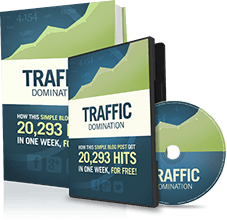
Watch this free video to learn...
- How I got over 10,000,000 people to visit my websites.
- The types of blog post that got me all that traffic.
- How to get someone else to do it for you!


